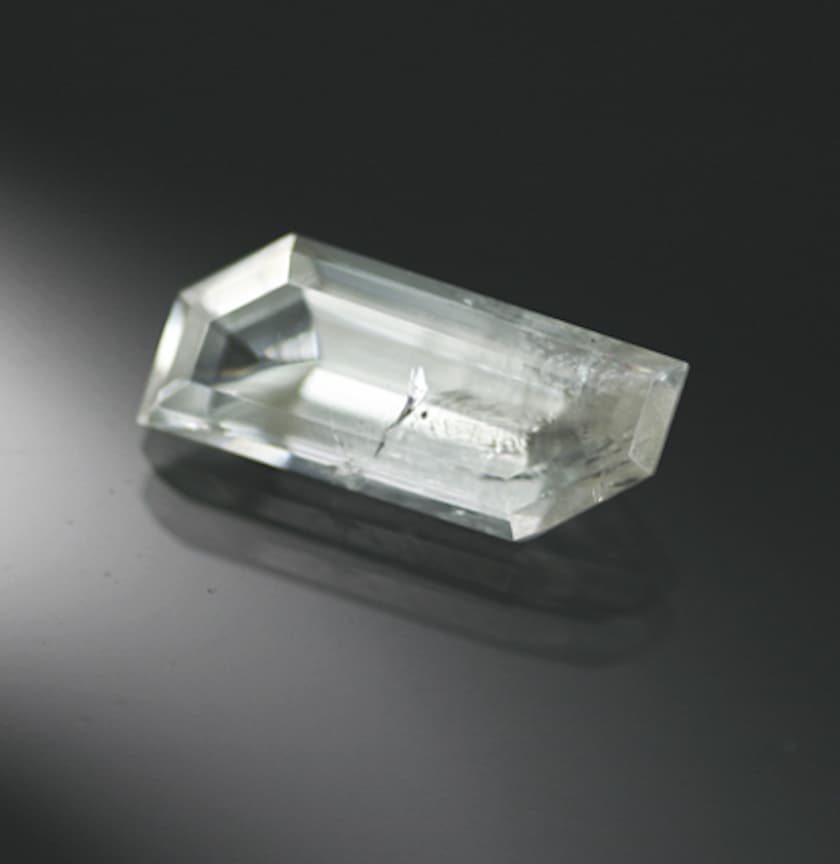Whewellite Value, Price, and Jewelry Information
Seldom seen even in mineral collections, whewellite is very rarely faceted. It’s mostly desired as a curiosity because of its scarcity, chemical composition, and unusual — sometimes organic — origins.
1 Minute Read
Seldom seen even in mineral collections, whewellite is very rarely faceted. It’s mostly desired as a curiosity because of its scarcity, chemical composition, and unusual — sometimes organic — origins.
Start an IGS Membership today
for full access to our price guide (updated monthly).Whewellite Value
Comments
A rare mineral, whewellite can develop both in the Earth and through organic means. It can grow hydrothermally in carbonate-sulfide veins and can also occur in coal seams as well as in concretions in plants and animals, most notably as kidney stones.
Although whewellites have fairly high dispersion, any faceted gems would be too small to appreciate this property. They have variable cleavage (from good to fair) in three directions and an extremely low hardness (a copper coin could scratch them). Thus, cutting and wearing them as jewelry stones is difficult.
Whewellites are best treated as display pieces for gem or mineral collections.
Synthetics
Scientists have synthesized whewellites for numerous projects, such as research into kidney stone formation and crystal twinning. However, there is no known jewelry use for this lab-created material.
Enhancements
None known.
Sources
Notable mineral sources include the following:
- United States: Havre, Montana: in septarian concretions (nodules); Elk Creek, South Dakota: fine crystals up to 6 cm in length, among the finest in the world.
- Burgk, Germany: crystals up to several inches in length.
- Czech Republic; France; Hungary; Russia.
Stone Sizes
Crystals are usually very small and colorless. From these, faceters could cut gems that typically weigh about 2 carats.
Care
Avoid cleaning whewellites with any solution that contains acids. Clean only with warm water, mild detergent, and a soft brush.
Whewellites contain oxalates (C2O4), and their consumption can lead to kidney stone formation. While these are present in some common foods and pose a risk if ingested over time, whewellites contain oxalates in greater concentration. Faceters should wear dust masks to avoid accidentally ingesting particles.
Exposure to whewellite dust may also cause acute skin irritation, especially in children and pets, so faceters should wear protective clothing and make sure to clean their workspace. A glovebox to contain dust would be ideal.
For more safety tips, see our article on lapidary health hazards.
Joel E. Arem, Ph.D., FGA
Dr. Joel E. Arem has more than 60 years of experience in the world of gems and minerals. After obtaining his Ph.D. in Mineralogy from Harvard University, he has published numerous books that are still among the most widely used references and guidebooks on crystals, gems and minerals in the world.
Co-founder and President of numerous organizations, Dr. Arem has enjoyed a lifelong career in mineralogy and gemology. He has been a Smithsonian scientist and Curator, a consultant to many well-known companies and institutions, and a prolific author and speaker. Although his main activities have been as a gem cutter and dealer, his focus has always been education.
International Gem Society
Related Articles
Lazulite Value, Price, and Jewelry Information
Sapphire Value, Price, and Jewelry Information
Ettringite Value, Price, and Jewelry Information
Idocrase Value, Price, and Jewelry Information
Never Stop Learning
When you join the IGS community, you get trusted diamond & gemstone information when you need it.
Get Gemology Insights
Get started with the International Gem Society’s free guide to gemstone identification. Join our weekly newsletter & get a free copy of the Gem ID Checklist!
